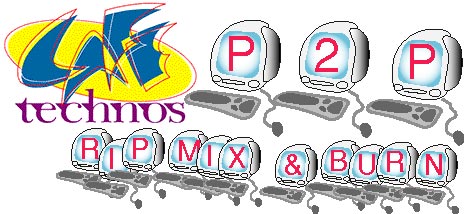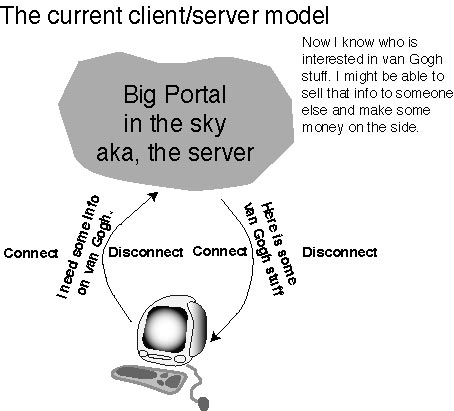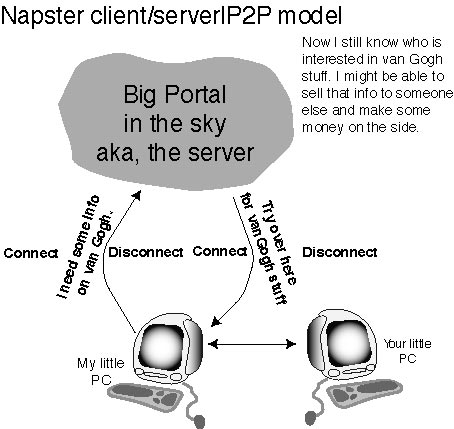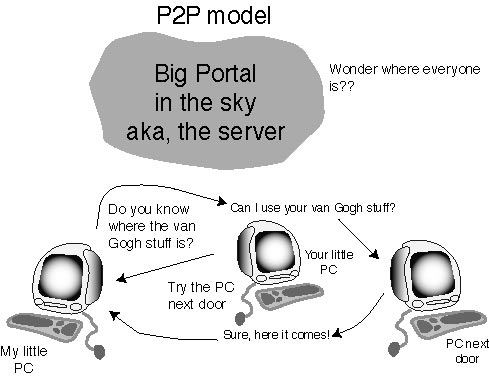

|
P2P: Technically Speaking,...
|
P2P: Technically Speaking, It¹ll Rock Your WorldP2P, like any technology, is technically complicated. The car, the phone, the TV, and the Web are also technically complicated, but few of us have much trouble using any of them because the technology has had time to mature and be refined for specific audiences. Napster became so successful because Napster was designed to be easy to use and to allow folks to find information they were very interested in: music. P2P as a general technology is not easy to use at the moment, but eventually it will be very easy to use as the audience grows and the markets become clear. Included here are some crude sketches of the evolution that P2P is ushering in, starting with the client/server model that P2P is threatening to replace 
to the Napster hybrid model that has gotten Napster into legal problems 
to a pure P2P model that completely bypasses the client/server to support trusted servers 
For education, the client/server model looks a lot like very traditional education at all levels, whether as a university/school model or a college/department model or a chair/faculty model or a student/teacher model. In all cases, there is a hierarchy with someone or some group on top which means, in control. The last P2P sketch looks more like a community, with the community in control as a trusted association. I think P2P has the potential to facilitate ad hoc educational communities maybe created by schools, maybe created by teachers, and maybe created by students. Folks interested in control will definitely be threatened by P2P technology because it will threaten control - which probably means that P2P technology will greatly strengthen ad hoc student educational developments in the very near future. I think this technology will allow students not just to create a new course here or there but also to create new curricula all over the place. The reason I expect it to happen first with students is because they are the early adapters and need the least interface to use the technology. (Remember, Napster was created by Shawn Fanning when he was an undergrad at Northwestern.) The students will essentially refine the technology for the traditional organizations to use eventually. This will be threatening at first to traditional organizations, but I can see a new organization similar to an open university or some variation on the University of Phoenix, Antioch, Goddard, or the European Graduate School (www.egs.edu), which may do no actual teaching but will authenticate and certify new curricula as they appear and search for validation. I see no way that this does not happen. The only questions are when and how much resistance will be offered by the threatened traditional organizations. Thom |